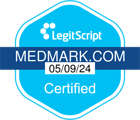If you or someone you love is dealing with addiction and considering getting help, it’s important to know what options are available for outpatient treatment. It’s vital to choose the right kind of treatment for yourself in order to set you up on a successful path to recovery. Learn about the different kinds of programs facilities have and prepare any questions you may have for a counselor who can help get you started.
Outpatient Programs
A common misconception for many is that anyone looking to overcome their addiction has to be “sent away to rehab” in order to achieve recovery. While there are inpatient programs that people may require for medically supervised detox, outpatient programs can offer a solution that accommodates every-day life while still effectively treating addiction. These outpatient centers allow people in treatment to continue attending their jobs, managing their responsibilities and living in the comforts of their own homes while they continue to rebuild their lives after addiction. For many people, this is a more attainable way to reach their recovery goals because they feel they can still have access to the world while they build skills to work towards ending their addiction. By attending daily sessions with medical staff, therapists, and peers who are also in treatment, people in recovery will start to feel like they are part of the recovery community.
Length of Outpatient Programs
The typical timeline for someone enrolled in an outpatient program is anywhere from one to three months but can also last for years depending on one’s goals and progress. However, each individual in treatment can tailor their recovery process as it pertains to their progress and health based on ongoing assessments performed by medical professionals at the facility. There will be continuous monitoring of wellbeing, and counselors will work with patients to ensure their needs are being met for however long they may need treatment. The first three months of recovery are known to be the hardest and most prone to relapse, which is why it’s important for people to attend their counseling sessions and medicated treatment, like methadone or buprenorphine, if needed. The right outpatient program can give you the tools to ensure you are taking care of your mind and body while you work towards eliminating any chemical dependency you may have on drugs, all while honing in on psychological barriers you may need to break through to understand the root cause of your addiction.
Counseling Programs
Cognitive therapy is an essential part of recovery. Outpatient programs offer services that focus on both individual and group therapy. Both of these types of therapy sessions are important for those in recovery to reflect on personal growth but also to share their thoughts and feelings with like-minded peers who are also on their own paths to recovery. Patients can also coordinate group sessions with their counselor to involve their family or loved ones if they wish to do so. Each patient is assigned a case management counselor that will advise them for the duration of their treatment, helping them understand the exact counseling sessions that would be best for them. Along with medical screenings and supervision, patients will learn about the science of addiction, relapse prevention, and more. There is also coordinated pregnancy treatment for those who want to ensure the best health for their baby while going through recovery. Each person enrolled in treatment will have access to a large referral community database with invaluable resources to help them through their recovery journey.
Group Therapy: It has been found that group therapy can be just as vital to the recovery process as individual therapy. These group sessions can help create an environment where clients build communication and social skills with their peers. They are able to relearn how to enter social situations without the presence of drugs. Having peers who are also going through recovery can provide a great amount of emotional support. Group settings also help provide a safe atmosphere for patients to socialize together in a structured atmosphere. Learning healthy ways to interact with others while in therapy is very important for long-lasting recovery.
Individual Therapy: Supportive one-on-one sessions are also vital for healthy recovery. Weekly or biweekly counseling lasting about 30 to 50 minutes are a part of intensive outpatient programs and are arranged once the initial medical treatment of the patient has been handled. During these sessions, patients will speak to counselors that can help them build coping strategies, discuss fears and hopes, and other thoughts while receiving productive and constructive feedback.
Benefits of Cognitive Therapy
CBT, or cognitive behavioral therapy, is beneficial to those facing addiction because it focuses on dismantling the destructive thought process which leads to negative behaviors. Without getting to the bottom of these issues, it becomes difficult to deal with addiction as a disease. Treating an underlying mental illness that may be present is the first step to getting better. It has been shown that many people who struggle with addiction also have issues with anxiety, depression, and obsessive-compulsive disorders, often making them feel hopeless against their own behaviors or thoughts. Helping people who have an addiction learn to recognize certain triggers, emotions, and behaviors is the best way to help them build the mental tools they need to overcome situations that can lead them to drug misuse. During CBT, clients will work with their counselors to speak on past events as well as future goals. Useful and practical self-help strategies are taught to patients who then use them to self-reflect on their own time at home. CBT is effective during outpatient treatment because of the frequency of sessions which helps hold patients accountable while they also feel emotionally supported.
If you think an intensive outpatient treatment program that uses medication-assisted treatment would be best for you or your loved one to get on the path to recovery, speak with a treatment center counselor today for an initial assessment to learn what the best next step is towards a drug-free life.





